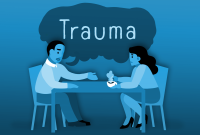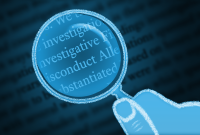Investigations

Taking a trauma-informed approach to investigations helps protect all participants—especially those harmed—while improving the quality and fairness of the investigative process.

Strong document retention policies are essential for workplace investigations and misconduct allegations. Get tips to protect your organization and those it serves.

Learn why fair and well-conducted investigations that respect due process are crucial for maintaining trust, for preserving core values, and for holding offenders accountable.

When leaders receive an allegation of abuse or misconduct, or other crises occur such as an act of violence or a cybersecurity issue, it’s a huge shock. If they are not well prepared, it’s easy to respond wrongly in ways that make the situation worse. Preparation will help leaders triage, act well, and keep people safe.

Do you really need that workplace investigation? In many cases, the answer is absolutely “yes”…it may even be legally required. Read on to find examples of when “Yes, you should have an investigation!”

Carefully following best investigative practices can help avoid harming people and avoid costly litigation.

Preventing and responding to sexual abuse is a major issue for churches and ministries. This article discusses the various ways in which attorneys can help organizations prevent and respond to abuse and discusses what ministries should expect from their attorneys.

Preventing and responding to sexual abuse is a major issue for churches and ministries. This article discusses the various ways in which attorneys can help organizations prevent and respond to abuse and discusses what ministries should expect from their attorneys.

Have you ever had a witness demand a virtual (Zoom) interview for an employment investigation? It’s not as simple as it sounds.
